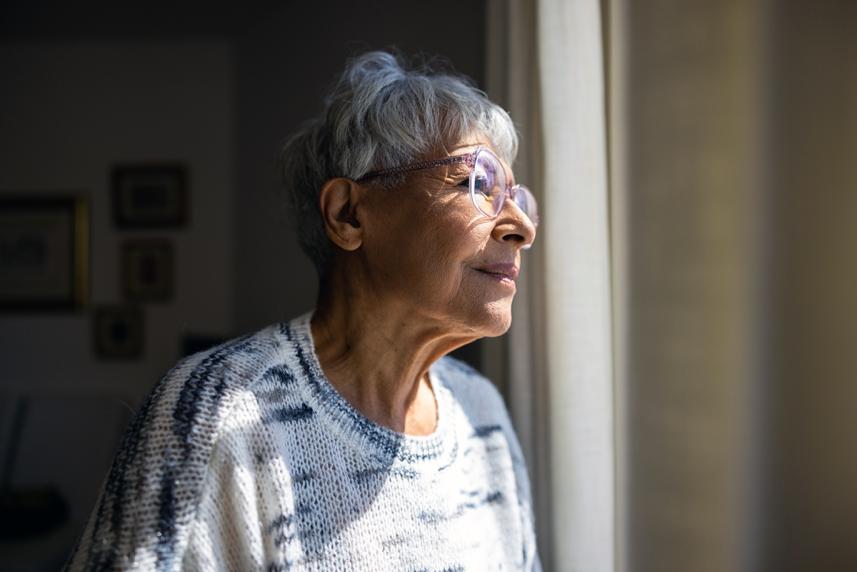Sneaky signs of dementia and Alzheimer’s disease
Dementia is more than just memory loss. Here’s how to spot some of its less obvious symptoms.

Some memory problems are normal with age. There’s no need to panic if you momentarily forget where you placed your car keys or can’t recall the name of that actor from that one movie.
But when memory loss starts to disrupt your life, it may signal something more serious, like dementia. What’s more, memory loss is not the only symptom of Alzheimer’s disease and dementia — though it is the most well-known symptom. Look out for these other signs and symptoms in yourself and your loved ones.
Are you worried about your memory? You can connect with a Registered Nurse Health Coach* by calling 1-855-332-3102 (TTY/TDD: 711), 24 hours a day, seven days a week. They will listen to your health concerns and work with you to figure out the best path forward.
Trouble with problem-solving and poor judgment
People with dementia may struggle to come up with solutions to problems, such as balancing a budget or following a recipe. They may also show poor judgment. For example, they may walk outside on very hot days wearing a winter coat.
Struggling to complete familiar tasks
People with dementia may struggle to remember directions to familiar locations, like home. They may also forget the rules of a longtime favorite game, for instance, or the watering schedule for the plants in their garden.
Confusing times and places
Dementia and Alzheimer’s disease can affect a person’s perception of time. They may lose track of the day or season or think they’re somewhere other than where they are. They may also have a hard time understanding something if it is not currently happening.
Trouble naming objects or using the right word
We all forget a word now and again. But if someone is struggling to identify a familiar object, it could be a symptom of dementia. For example, the Alzheimer’s Association says someone with Alzheimer’s disease may refer to a watch as a “hand clock.”
Misplacing items
Losing something isn’t necessarily a sign of cognitive decline. But when someone often misplaces things and is unable to retrace their steps, it could signal something more serious. Examples might include things like leaving their car keys in the pockets of clothes in the washing machine or putting their eyeglasses on top of the refrigerator.
Changes in mood and personality
As their disease progresses, people living with dementia often become increasingly suspicious, confused, anxious, or fearful. This is especially true when they are somewhere out of their comfort zone, but it can happen at home and with loved ones too.
Vision issues
Some people who live with dementia may experience vision changes that lead to trouble reading or keeping their balance. They may also misjudge distances, which can make driving dangerous.
Tips to lower your risk of dementia
- Protect your ears. Untreated hearing loss is linked to a higher risk of dementia, according to the National Institute on Aging.
- Maintain friendships. Having strong friendships may lower your dementia risk, according to the Centers for Disease Control and Prevention (CDC).
- Work your brain. Older adults who regularly did word puzzles had brain function equivalent to 8 to 10 years younger than their actual age, according to a 2019 study from England.
- Get moving. Exercise helps keep your brain healthy by increasing blood and oxygen flow, according to the Alzheimer’s Association.
- Eat brain-boosting foods. The MIND diet — the name stands for Mediterranean-DASH Intervention for Neurodegenerative Delay — puts an emphasis on brain-boosting foods like leafy greens and berries.
- Limit alcohol and smoking. Smoking and excessive drinking have been linked to a higher risk of dementia.
*You have the right to opt in or opt out of these services. Simply advise your Health Coach or case manager at any time if you wish to end your relationship with them. You may also call the number on the back of your member ID card and ask that you not be contacted by a Health Coach in the future.


